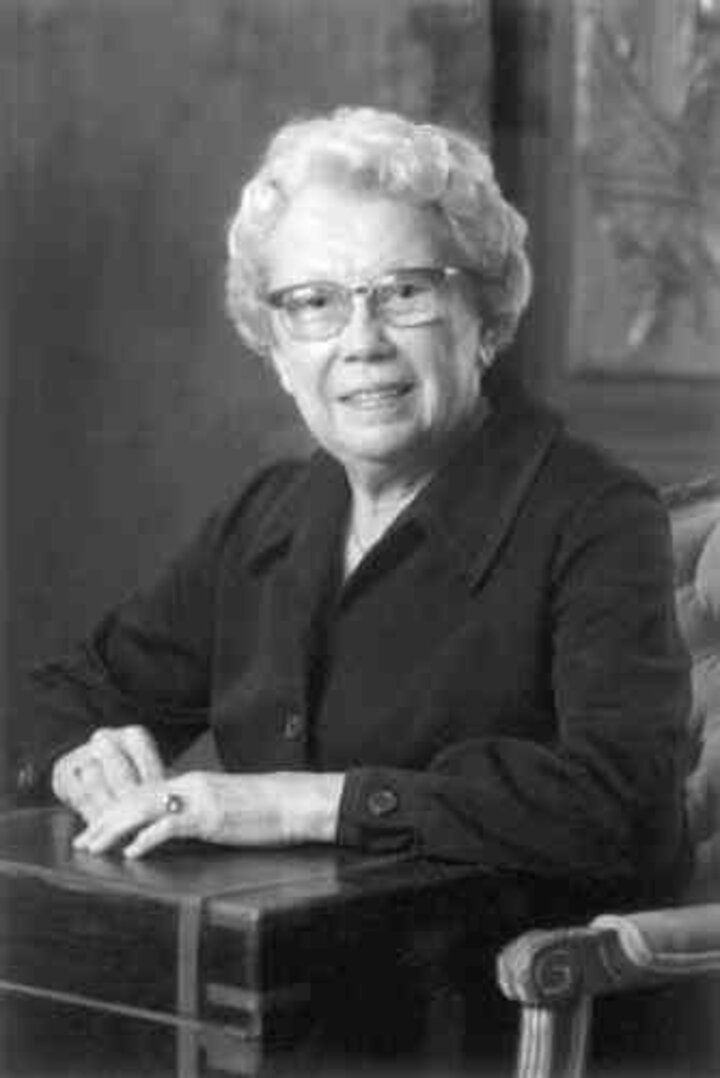⚠️ Current Students Only
The Ruth Leverton Scholarship recipients join the Regents Scholars, David Distinguished Scholars, and others as beneficiaries of UNL's commitment to academic excellence and to enrolling top student scholars.
The Ruth Leverton Scholarship provides $13,000 per year toward the cost of UNL undergraduate nonresident tuition charges for up to four consecutive years, or the completion of a bachelors degree, whichever comes first.
| 1 | Recipients must remain nonresidents of Nebraska. Any individual who establishes residency for the purpose of paying in-state tuition rates will automatically forfeit the Ruth Leverton Scholarship. |
| 2 | In order to complete the requirements for a degree in eight semesters, a student must earn an average of 15 credit hours each semester. Scholarship recipients must enroll full-time (at least 12 UNL credit hours) during each semester of the academic year (fall and spring semesters) in order to receive the benefit. These hours must be officially registered by the sixth day of classes each semester. *Note: Scholarship is prorated for enrollment in fewer than 15 credits in fall/spring: 100% ($6,500/term) for 15 or more credits, 93% ($6,045/term) for 14 credits, 87% ($5,655/term) for 13 credits, 80% ($5,200) for 12 credits, and 0% for fewer than 12 credits. Enrollment level will be determined at census. Adding mini courses after census will not result in scholarship reinstatement. |
| 3 | Attending summer sessions is not required for renewal of this scholarship because it cannot be applied in the summer. |
| 4 | Recipients must successfully complete 24 UNL credit hours each academic year (fall and spring semesters). Successful completion is defined as the sum of all UNL credit hours completed with a grade of A through D- or Pass (P). Grades of I, N, W, F, and NR are not considered successfully completed. Repeated courses will only count once and must be registered for consecutive semesters (i.e., full-time by sixth day of classes each semester). |
| 5 | Recipients must remain in good academic standing within the University, which requires maintaining satisfactory academic progress towards a degree and a 2.000 cumulative grade point average, measured at the end of every spring semester. The University computes grade point averages to three decimal places and does not round. |
| 6 | The scholarship will be discontinued if the recipient withdraws from school or fails to enroll for consecutive academic year semesters, unless an exception is granted because of extenuating circumstances. Withdrawing completely, dropping below full-time during the refund period, or enrolling in distance education coursework will cause the scholarship to be reduced to the nonresident portion of tuition. |
| 7 | Students whose Ruth Leverton Scholarship is based in part on majoring in music, theatre, dance or art will be required to remain in that major in order to maintain the same level of scholarship funding. |
| 8 | Recipients can combine this award with other academic scholarships. Recipients cannot combine this award with the benefits of any tuition reciprocity agreement with another state or with any other federal, state or University program where the benefit is the payment of nonresident tuition (in full or part). |
| 9 | The scholarship cannot be used for non-credit courses or non-term specific correspondence courses. |
| 10 | For education abroad programs, this scholarship may be applied toward UNL course credit (if non-resident UNL tuition is charged). This scholarship cannot be applied toward course credit that will be transferred from another institution. Students may apply for a variety of scholarships specific to education abroad: Learn More |
| 11 | This scholarship may be supported through the generosity of donors. If such is the case, you may be required to complete a thank you note. |

About Ruth Leverton
Ruth Mandeville Leverton attended the University of Nebraska, graduating with a degree in Home Economics in 1928. She taught school for two years in rural Nebraska, and then moved to Tucson to study nutrition at the University of Arizona. She received her Masters degree there in 1932. She then went to the University of Chicago and earned a PhD in 1937. Her doctoral research focused on iron needs in women.
Leverton accepted a teaching position at the University of Nebraska College of Home Economics upon completion of her PhD. She was also appointed to the Agriculture Experiment Station, where she continued to study the nutritional needs of women, particularly the importance of iron. During this time she was given laboratory space in the meat laboratory, since the Experiment Station was over crowded. She began to lobby University administrators for a new building with space more suitable for nutrition research. In 1941 the Food and Nutrition Building was constructed. While at Nebraska, she was recognized for her work with essential amino acids in women's diets, and for her now classic text Food Becomes You, which was published in multiple four editions. She dedicated the book to the women of Nebraska and their families.
Leverton stayed at the University of Nebraska for 17 years. In 1957 she was hired by the United States Department of Agriculture, Human Nutrition Research Division. Leverton held increasingly responsible positions with the USDA. She was professionally active and received numerous awards, including a Fulbright that took her to the Phillipines. She traveled throughout Europe, Asia and Africa promoting proper nutrition through UNESCO and the FAO.
Ruth Leverton died in 1982. In 1976, the Food and Nutrition Building was renamed in her honor.
We're Here to Help
Husker Hub Student Services Center
Husker Hub is Nebraska's "one stop" for you to get assistance with the FAFSA Form, scholarships, grants, loans and more. Our Husker Hub full-time student services specialists are available remotely Monday-Friday through a Virtual Queue to help answer all of your questions about paying for college.